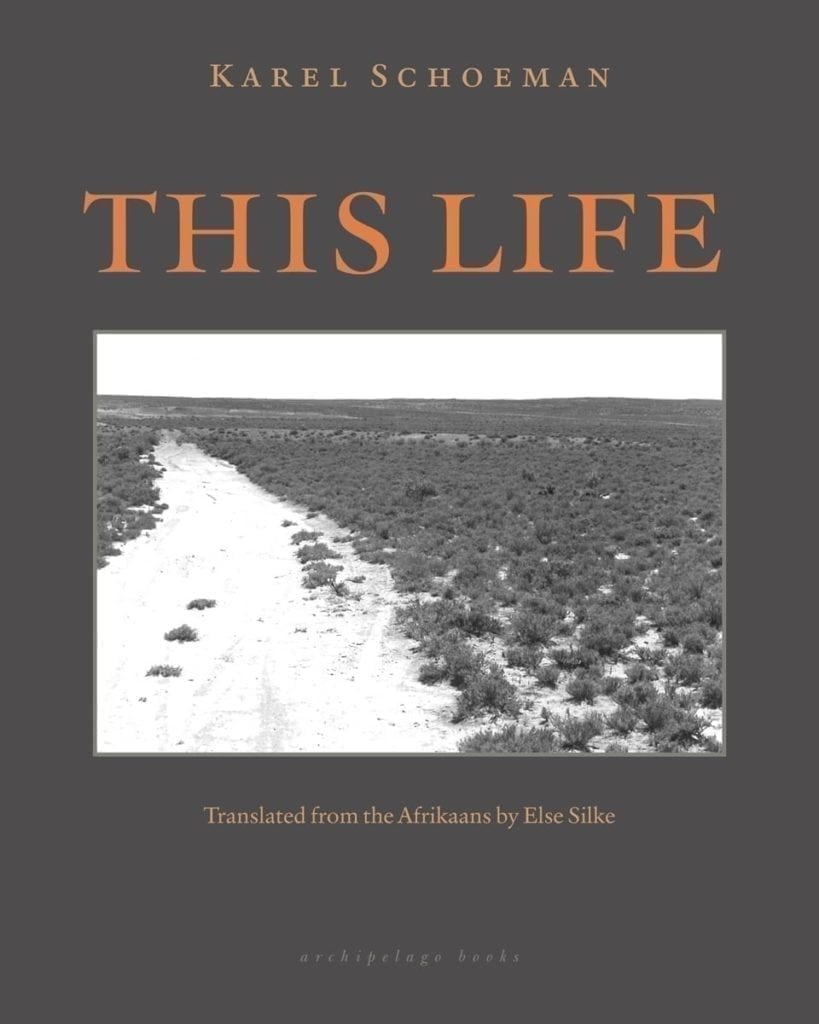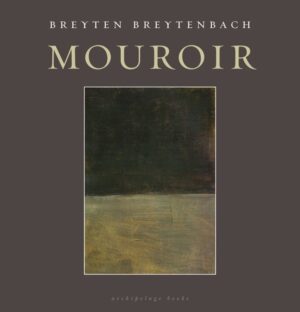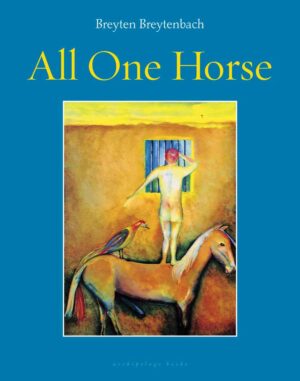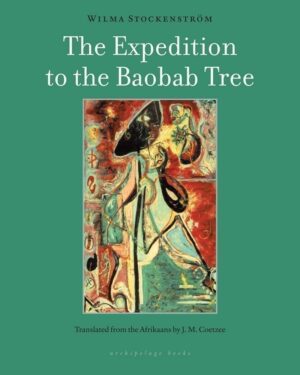Book Description
Written by one of South Africa’s most celebrated writers, This Life considers both the past and future of the Afrikaner people through four generations of one family. Told from the perspective of one woman in her final days, and beautifully written in Schoeman’s poetic, lyrical style, it is a remarkably vivid account of a 200 year-old culture and history that has been irrevocably lost. A quietly powerful book about memory and reconciliation.
For all that Schoeman’s novel summons up grand themes, its handling of them is subtle and sometimes mysterious, arriving at its most powerful moments unpredictably and honestly.
— Kirkus
The meandering, exploratory narrative is at once beautiful and heartbreaking.
— Publishers Weekly
The giant of Afrikaans literature, in Else Silke’s lucid translation, gives Sussie a whispering, almost incredulous voice as she sifts through the evidence from her life, pursuing answers to the mystery of her childhood... The Schoeman protagonists are slender, quiet, almost invisible. One of the author’s most striking skills is his ability to turn these lethargic figures, so distant from their own inner lives and needs, into objects of empathy.
— Nathaniel Popkin, The Wall Street Journal
Schoeman’s prose comes most alive in descriptions of the South African countryside, tracing light and shadow over the veld. He is unsparing with his characters, giving them few paths for easy resolution.
— Roy Hoffman, The New York Times
Translated from Afrikaans, this post–Apartheid novel carries the reader through four generations of Afrikaners and the value of memory. The tale of one woman and her deathbed reflections, it is a convergence of past and present permeated by gothic tones. This Life lyrically covers fear, violence, suffering, and other dark pockets of life while also stretching beyond itself into a modern melodrama about reconciliation.
— Nota Bene, World Literature Today
[A] lyrical prose, full of gentle repetition and almost Beckettian self-doubt and self-contradiction... The translation by Else Silke is exemplary, in that it never feels as though it is operating once removed from Schoeman’s text. There is a poetics in the word choice, and an elegiac tone which helps to move the narrative forward even while it swirls around in the darkness. It makes This Life a joy to read and, I suspect, reread. Archipelago has, as always, produced a beautiful designed book, one which provides a perfect introduction to the work of one of South Africa's most celebrated writers.
— Jonathan Morton, Words Withour Borders
One of the most moving tales imaginable... There is a strong meditative quality to the work, as well as a somber lyricism, reflected in the cadence and rhythm which is more often seen in poetry than prose.
— Beverley Roos Muller
Awaiting the light of a morning that will never come, Schoeman’s narrator speaks to us as if into a mirror, tracking dreams and memories like animals into unknown and forgotten spaces. This Life is a remarkable, ruminative novel told with the patience of the lithosphere.
— Chad Felix, WORD Bookstore
An overwhelming, moving, lyrical book.
— Gerrit Olivier
This Life is a novel of its time: a compulsion to understand the past in order to achieve reconciliation in the present.
— Isidore Diala
In this late exemplar of the Afrikaans farm novel, Schoeman, the South African master of landscape, lays bare the bonds linking memory to place in story with steady but irresistible narrative force.
— Jan Steyn
Schoeman’s novel uses the unforgiving setting of the South African veldt to frame the unfulfilling life of an Afrikaner woman on her death bed. Describing four generations of a single family, Schoeman explores the poverty of the Afrikaner experience, especially the alienated place of daughters in that society, showing that a broken society affects all of its citizens, not just its most persecuted.
— Benjamin Riley, The New Criterion's Critic's Notebook
And how, you might ask, could she possibly make such a book interesting? My answer: beats the hell out of me, but here is one that is - at least for one of us - un-put-down-able…Even in the the sudden, short-lived spring in the high country, the language manages to turn lyric. We feel ourselves to be properly here.
— RALPH




